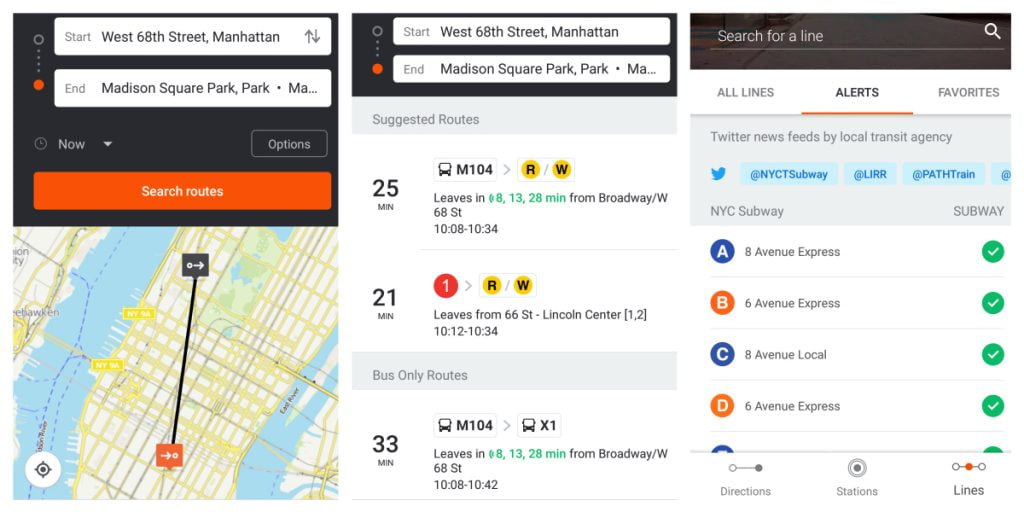Israeli-founded transit data company Moovit announced this week that it will partner with Microsoft to integrate its transportation platform into Microsoft’s Azure Maps. The partnership will allow developers who use Azure Maps to hook into Moovit’s transit data.
The Moovit app provides real-time information on the fastest public transportation routes (buses, trains and underground), is available in 44 languages and has 300 million users in 85 countries. It’s commonly been referred to as the “Waze for public transport,” in reference to the Israeli-founded company that developed a crowdsourced navigation system, bought by Google in 2013 for over $1 billion. Moovit also sells transit data analytics to municipalities and public transport operators through its Smart Transit Suite, a platform that provides real-time information on people movement, optimal routes, wait times, locations of buses and trains and other data for network managing. Moovit says it generates more than a billion movement data points a day with crowdsourcing from users and 450,000 local editors spread across the world.
“Integrating Moovit’s transit data into Azure Maps will help developers build richer apps using public transit. Information provided will include A-to-B trip planning, nearby stations, stops and lines with multimodal options. Transit line information like scheduled and real-time transit arrivals, list of stops and route guides will also be included, as well as detailed and multimodal step-by-step itineraries, service alerts and transit maps,” Moovit said in a statement.
“Moovit’s top quality transit data and world-leading multi-modality services perfectly fit into the Microsoft Azure Maps portfolio of offerings for app developers,” said Moovit co-founder and CEO Nir Erez in a statement. “We’re delighted to work with a world-class company like Microsoft and integrate our rich transit APIs into Azure Maps so developers can build greater apps for people who ride transit everywhere.”
Moovit was founded in 2012 by Erez, Yaron Evron, and Roy Bick. The company has raised over $130 million to date, including a $50 million funding round in February led by Intel.
Related posts

Israeli AI Safety Tool Among TIME’S Best Inventions For 2024

TAU Team Discovers Mechanism To Eliminate Cancerous Tumors

Ashdod Port Investing In Startups As Part Of Innovation Strategy




Facebook comments